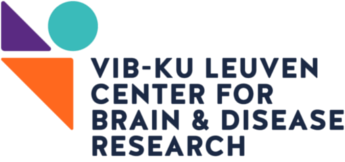National ALS register
National ALS register
UZ Leuven – Dienst Neurologie
Laboratorium voor Neurobiologie, VIB – KU Leuven Center for Brain & Disease
Herestraat 49 bus 602, 3000 Leuven
Prof. Dr. Philip Van Damme
To date, many questions about the disease ALS remain unanswered. Even simple questions like: How often does ALS occur in Belgium? How many patients are there actually in Belgium? Which percentage of these patients take riluzole? What is the average survival rate? Are there any environmental factors with which patients came into contact?
Research into the occurrence of a disease, its causes, and the factors that help predict the course of the disease are the focus of epidemiological research. Currently, this type of research is mainly conducted through the database of ALS patients registered for medical consultation and / or care at UZ Leuven. However, this can result in a distorted picture, as only a relatively small portion of all Belgian patients is included. Ideally epidemiological research is carried out on the basis of a population register, which records all patients with ALS and collects data about all these patients. However, only a few countries dispose of such an extensive national ALS register. This illustrates the importance of a register as a tool to better understand the disease.
Establishing a national ALS registry requires a rigorous planning. First of all, an ethics committee's approval is an essential prerequisite to collect and process data from patients. In addition, there are a host of logistical challenges. How will the data be collected? How will they be stored? How will all ALS patients be reached? How can we ensure that we get the correct data from all those patients? Can we include certain questionnaires and scales in the registry? In order to streamline this endeavor, a coordinator must be appointed, who initiates and maintains the ALS register.
Work plan and cost estimate:
In the start-up phase, firstly a roadmap has to be drafted and the approval from the ethics committee must be obtained. Secondly, an appropriate IT platform should be identified to collect and organize patient data as efficiently as possible. This planning phase will most probably take one year.
Once the registry has been established, it is necessary to check the quality and completeness of the data on a continuous basis.
To realize these tasks a full-time coordinator is required (50,000 € / year).





